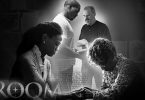Q. “I am a twenty four year old male in a live- in with my girlfriend. We are both doing the same professional course and are away from family. My parents will never approve of this relationship so I can never marry her but she cannot live without me. I don’t know what to do!”
Cohabitation or live-in relationships has been on the rise in recent years. Based on research, different patterns of relationships have been seen in co-habiting couples and your relationship seems to fit into the pattern of “convenience”. In this pattern, one plays the role of the giver and the other the receiver. The giver keeps giving hoping that reciprocity will follow or their unconditional giving will result in a response from the taker, which usually never happens.
It seems like you’ve considered what your parents think of this relationship and you are probably experiencing guilt, disappointment or both as a result. You certainly do know that marrying her is close to impossible, so no long term commitment is being considered. Considering that you feel she cannot live life without you, I wonder whether you are concerned about where that would leave her once this relationship comes to an end. Then, what is keeping you in this relationship? How is it benefiting you? Whatever the benefit, to come out unscathed when the relationship breaks is almost impossible. My concern is that this relationship will impact you eventually. However, taking responsibility earlier and dealing with it quickly may help heal or at least reduce the pain to some extent.
The risk of not taking responsibility now may lead to disillusionment, faulty habits or stronger self-protective mechanisms. Therefore one may have repeated affairs where they may experience the ‘high of falling in love’ or being only physically involved. Once the relationship ceases they immediately move on to another relationship without intimacy or commitment. They may leave behind a trail of broken hearts and may themselves become manipulative and lacking, even longing for true love. The risk here may be that they become addicted to the heady experience of sexual intimacy and may turn promiscuous as a result.
For the moment the relationship suits you well, but can you face up to the consequences? Do you see where this relationship will end? If you are planning to get married to another girl in the future, what will you take into that relationship? Will the patterns of guilt, hiding and manipulation become part and parcel of who you are?
Weighing the temporary conveniences and the future repercussions together may help you come up with a sincere evaluation of your situation. You need to remember that both you and your girlfriend are involved, and each one’s choice affects the other in the long run.
Q. “I am a twenty six year old male. My parents had a bad marriage. I still remember the bitter fights they had before they separated. I want to get married but I wonder whether it is worth it… I may mess it up!”
The images that we see from childhood and the sense we make of the same in our conscious and unconscious minds are powerful. Somewhere along the line, one has construed beliefs and deductions as a result of simply seeing one’s parents dealing with each other. As we grow into adults, there is a need to know what meanings we have attached to this relationship. It could be as close as witnessing your parents’ marriage as you grew up or the facts you were exposed to socially, emotionally or spiritually concerning the institution of marriage.
Firstly, it’s important to acknowledge to oneself that there are some painful associations with what you have seen and experienced. Children being egocentric (centre of their parent’s world) by nature may somehow feel responsible for parents separating. You may have been torn between the two in-dividuals who constitute your world. That must have been tough on you as a child as your parents’ going their respective ways affected you deeply.
I can see your openness to considering marriage on one hand and yet doubts fill you as you have bad memories. I think you are at an advantage as you are being cautious and asking questions about it. I hear your need to have a good marriage rather than ‘mess it up’. I also recommend you deal with the impact your parents’ divorce has had on you. It may be as simple as talking to a trusted friend about it or personal introspection about beliefs made about self, others and the world around.
However, at this point in life you have the opportunity to expand and review your view of marriage. This is the place where you can view it objectively, gather facts about it. Maybe, even ask married and unmarried friends what they think about this institution. There are many resources on the internet as well as organisations who conduct workshops, questionnaires to help you prepare for this in-stitution of marriage.
Anyone can have a good or bad marriage. Like all close relationships, marriage also requires effort, care and commitment.
Q. “I am a thirty year old woman, educated and holding a good job. My parents want me to get married but I doubt I will find a man who is broad minded and intellectually compatible. I would rather be single, than compromise! I am unlike my mother who stayed home and was the traditional, stereotypical wife and mother.”
Although, more and more young women are concentrating on seeking jobs and careers, they still tend to prize marriage, parenthood or both at some point in their life. I can see that you are considering marriage seriously and you are not going to marry just ‘anybody’. I appreciate your honesty, courage and awareness of who you are and what you want. I would encourage you to list down other expectations as well. It’s good to discuss your list with a trusted friend or mentor or counsellor. This would help you add, rewrite, scale down and incorporate expectations which are realistic and practical. It may help you in making your choice.
I can see that you are looking for someone who can accept you as an equal, someone who can understand you and is not intimidated by your education or independence. Today, there are men who are looking specifically for qualified and educated companions. However, as you continue working and waiting, it’s good to ask yourself whether you value yourself as a person and view marriage as being important, but not everything in life. This would make you a valuable partner when marriage happens. You are not seeking a partner because you are handicapped, instead you are coming into marriage as an equal partner, comfortable to give and receive.
It’s interesting to see how times have changed. Gone are the days when gender roles were so fixed that acting uncharacteristic of expected roles was looked down upon. In today’s world there is a greater amount of flexibility in roles. It’s not uncommon now to find a husband who takes time off to baby-sit or a wife who shares the load of the breadwinner. There is a redefinition of roles in marriage while the core remains the same – the need for companionship, wanting to build a home etc. What worked for your mum may or may not work for you; you will need to find your own balance.






Leave a Comment